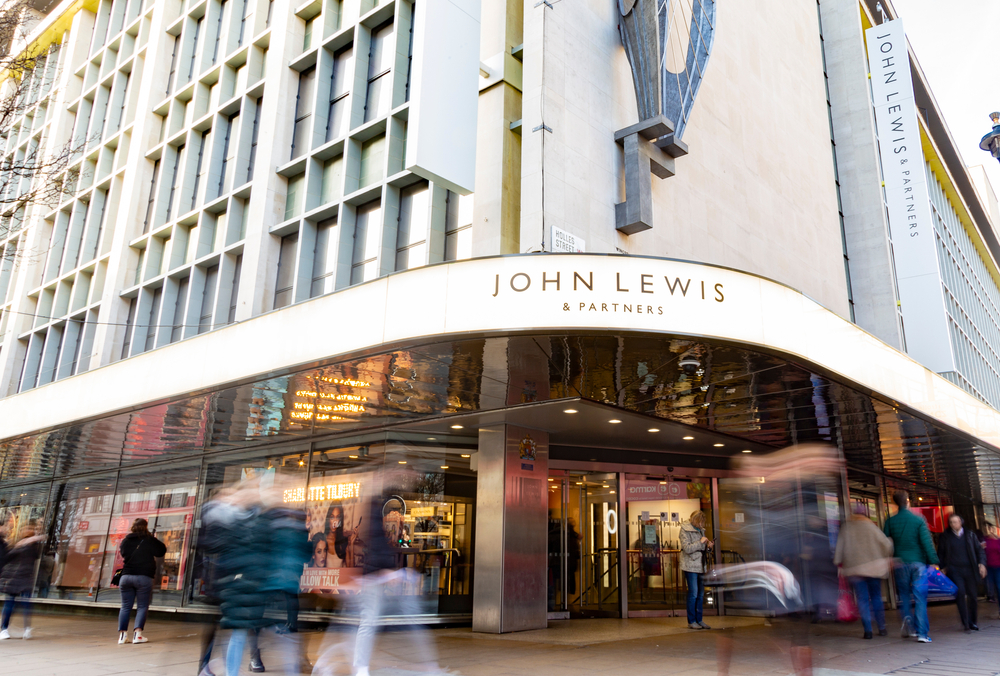Since the start of November almost every major retailer has released their offering to 2016‘s eclectic selection of Christmas adverts.
Each year the popularity of adverts seems to grow, with hundreds of millions of views on social media between them and countless more on television, this year has proven to be the most hotly debated ever.
This is of course reflected in the retailer‘s budgets, which each year seem to grow as exponentially as their popularity. It‘s estimated that spend this year could reach £5.6 billion, £300 million more than last year.
John Lewis is thought to have spent £7 million this year, overshadowed by Burberry‘s rumoured £10 million budget.
According to Sainsbury‘s for every £1 spent on its campaign in 2014, they raked in a £24 profit. It‘s no wonder why retailers are so keen to win the battle of the Christmas ads. But what is it that makes us Brits so mad about them?
FOR A ROUNDUP OF THIS YEARS BEST ADS: Retail Gazette Loves: 2016‘s Christmas Adverts
Research has found that Brits look forward to Christmas adverts more than the Queens speech. It is also one of the top five talked about topics over the season, above how much weight we have gained and the Christmas number one.
“In no other country is there any similar phenomenon – our closest neighbour in terms of consumerism is the US and the Macy‘s Christmas advert is currently showing 36,000 views compared to the 14 million plus for Buster the Boxer,” head of retail research at Context Adam Simon said.
“The John Lewis You Tube channel has, for example, 113,000 subscribers, compared to Macy‘s which has 36,000, and on that channel there are 100‘s of product and service videos. Christmas TV adverts are a particularly British way of driving the omnichannel shopping experience.”
Alex Gunz, lecturer in marketing at Alliance Manchester Business School pointed out that our own retailers may have started this trend: “What is different about the UK of late is that there has been a boom in high-budget narrative form adverts, mostly from supermarkets and department stores.
“As far as I can tell, John Lewis started this by marrying the season’s pleasure/anxiety about buying the perfect gift with their brand positioning. These have been very successful at generating buzz and attention, and have coincided with steadily growing revenue for John Lewis.”
It‘s the TV event of the year, and Kevin couldn‘t be more excited… #BusterTheBoxer #KevinTheCarrot pic.twitter.com/cvhDh9piDk
— Aldi Stores UK (@AldiUK) November 10, 2016
The explosion on social media would seem to suggest that more people than every are interested in these adverts, however like many social phenomenon they are often the products of the retailers in the spotlight, as digital strategy director at iProspect Libby Darley explained:
“Digital plays a huge part in this; brands are putting their adverts live on Youtube before the big TV unveil and they all come with an accompanying hashtag, thus inspiring everyone to jump on their social channels and publicise their reactions and opinions.
“I don‘t see this going away any time soon, but we‘ve seen that this year, brands are looking for different ways to get into those social conversations. Aldi‘s social content last Thursday surrounding the launch of John Lewis advert is a prime example of this. No matter what the advert is about, people will talk about it.”
It‘s not enough to just be clever, Christmas adverts need to evoke an emotion in us, and they have become a “well oiled machine” in doing so.
Social Circle‘s managing director Matt Donegan stated: “We have become a hugely open nation when it comes to sharing our emotional status on social media. When the emotions we share are hooked to a topical event, like Christmas, then we love sharing them even more.”
READ MORE: John Lewis advert sparks 300 per cent rise in trampoline searches
“The obsession for Christmas ads, especially the John Lewis ones, can be illustrated this year by simply looking at the ‘fake ad‘ by an A-Level student who made his own version of the John Lewis ad and released it a few days before the real thing – leading to millions of shares and likes.
“That‘s how obsessed Brits are with Christmas ads! A few influencers shared the fake ad and it went viral. It‘s a phenomenon that wouldn‘t work in any other country or in the past.”
Someone who would know first hand just how important getting this right can be for retailers is McCann Worldgroup UK‘s Jamie Peate, who was planning director on this year’s Aldi advert.
Peate stated: “For the UK retailers it can be literally make or break, so getting it right is really important.
“They have to capture the right mix of impact, entertainment and sharability, while still being true to their role in the lives of their customers, and sell products! That can be quite a Christmas wish list!”
Click here to sign up to Retail Gazette’s free daily email newsletter


















